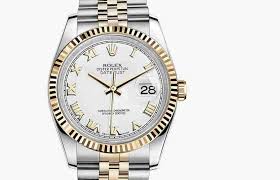A 1031 exchange is actually a income tax-deferred exchange that permits you to defer investment capital results taxes in the transaction of any investment property by reinvesting the selling cash right into a similar house. But, the 1031 exchange process is complicated and needs careful planning and execution. Among the important aspects of an effective 1031 exchange is the use of a qualified intermediary (QI). In this post, we are going to discuss how the qualified intermediary facilitates a 1031 exchange and why it is essential to guarantee an effortless and certified financial transaction.
1. What is a Qualified Intermediary?
A qualified intermediary can be a thirdly-bash company that facilitates a 1031 exchange upreit companies by keeping the cash from your selling in the relinquished house and ultizing those funds to acquire a like-type house. The IRS needs a QI simply because they cannot possess romantic relationship with either the customer or maybe the seller. The QI guarantees the funds are maintained apart from the taxpayer’s credit accounts until they can be reinvested into a new home.
2. Part of your Qualified Intermediary
A QI takes on an important role inside a 1031 exchange since they act as an intermediary in between the buyer and owner. They get ready the 1031 exchange documents, facilitate the sale in the relinquished house, and ensure that the retailer does not acquire any of the exchange cash. The QI can also help identify replacing qualities, perform research, and prepare the closing records for the purchase of the newest home.
3. Advantages of choosing a Qualified Intermediary
There are various benefits to utilizing a QI to get a 1031 exchange. For starters, a QI makes sure that the exchange complies with all of Internal revenue service suggestions. They already have the experience to do homework on the relinquished and alternative qualities, ensuring that they fulfill the 1031 exchange standards. Next, a QI might help recognize suitable alternative qualities, protecting the tax payer time and cash. Ultimately, using a QI enables taxpayers to pay attention to their current enterprise and personal interests whilst not being concerned concerning the transaction’s complexities.
4. Down sides of Not Employing a Qualified Intermediary
If a property owner chooses not to utilize a QI within a 1031 exchange, they are considered as consuming positive sales receipt from the transaction proceeds, producing the transaction no more tax-deferred. Without having a QI, the tax payer is accountable for determining the replacement house within 45 days, and there is not any guarantee how the vendor will not receive the earnings just before the shutting over a new property. Using a QI is easily the most reputable and proven approach to guarantee a successful 1031 exchange.
5. Selecting the best Qualified Intermediary
Selecting the best QI is vital to make certain a successful and compliant 1031 exchange. Our recommendation is that taxpayers study and compare QIs to obtain the best one to them. Take into account their expertise, place, and charges to make an informed choice. Search for a QI which includes sleek their functions, has a verified track record of productive swaps, and possesses obvious conversation and visibility.
In a nutshell:
To sum up, a qualified intermediary plays a crucial role in facilitating a 1031 exchange. They be sure that the purchase complies with IRS recommendations, helps with the homework method, recognizes probable replacement attributes, and prepares the essential records for both the transaction from the relinquished house and the purchase of the like-form house. Whether you’re the first-time purchaser or did multiple 1031 exchanges, by using a qualified intermediary is the easiest way to make certain an easy and successful purchase. Make sure to study and examine QIs to discover the right one for you.



